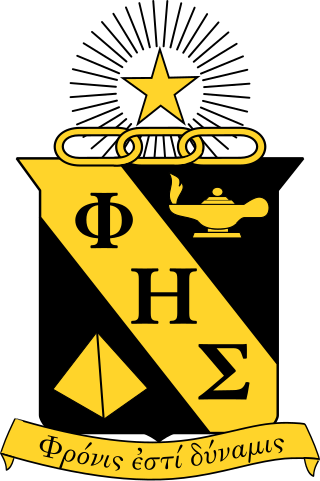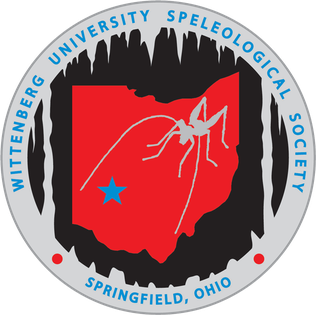Worldcon, or more formally the World Science Fiction Convention, the annual convention of the World Science Fiction Society (WSFS), is a science fiction convention. It has been held each year since 1939. The members of each Worldcon are the members of WSFS, and vote both to select the site of the Worldcon two years later, and to select the winners of the annual Hugo Awards, which are presented at each convention.
A cultural subsidy is a payment from the government to specific cultural industries to ensure that some public policy purpose in culture are preserved and maintained in society. Cultural subsidies work similarly to other forms of subsidies such as industrial and consumer subsidies and have similar goals of expansionary economic results and increased utility for their targeted recipients.
Email marketing is the act of sending a commercial message, typically to a group of people, using email. In its broadest sense, every email sent to a potential or current customer could be considered email marketing. It involves using email to send advertisements, request business, or solicit sales or donations. Email marketing strategies commonly seek to achieve one or more of three primary objectives, to build loyalty, trust, or brand awareness. The term usually refers to sending email messages with the purpose of enhancing a merchant's relationship with current or previous customers, encouraging customer loyalty and repeat business, acquiring new customers or convincing current customers to purchase something immediately, and sharing third-party ads.

Phi Eta Sigma (ΦΗΣ) is an American freshman honor society. Founded at the University of Illinois on March 22, 1923, it is the oldest and largest freshman honor society and has chartered three hundred and eighty-six chapters throughout the United States and inducted more than 1,250,000 members since its founding.

Jason Ricci is an American harmonica player and singer. In addition to his solo albums, Ricci has appeared as a guest harmonica player on albums with Johnny Winter, Terence Blanchard, Nick Curran, Ana Popovic, Walter Trout, Cedric Burnside, The Mannish Boys and Joe Louis Walker among others. Ricci was named "Best Harmonica Player" at the 2010 Blues Music Awards, and also performed on Grammy winning 2014 Johnny Winter album Step Back. In February 2015, Ricci played at the Rock and Roll Hall of Fame with the Paul Shaffer Band, Tom Morello and Zac Brown to induct The Paul Butterfield Blues Band. Ricci also continues touring with his band Jason Ricci and the Bad Kind as well as with other bands such as: "Harmonicon", "JJ Appleton and Jason Ricci" and "Mark Hummel's Blues Blow Off". In 2017, Jason Ricci and The Bad Kind signed a record deal with the Eller Soul label and released their new album Approved By Snakes released on June 16, 2017.

The Mineralogical Society of America (MSA) is a scientific membership organization. MSA was founded in 1919 for the advancement of mineralogy, crystallography, geochemistry, and petrology, and promotion of their uses in other sciences, industry, and the arts. It encourages fundamental research about natural materials; supports the teaching of mineralogical concepts and procedures to students of mineralogy and related arts and sciences; and attempts to raise the scientific literacy of society with respect to issues involving mineralogy. The Society encourages the general preservation of mineral collections, displays, mineral localities, type minerals and scientific data. MSA represents the United States with regard to the science of mineralogy in any international context. The Society was incorporated in 1937 and approved as a nonprofit organization in 1959.
The Royal Canadian Numismatic Association was founded in 1950. It is a nonprofit association for coin collectors and other people interested in Canadian numismatics. It has members throughout Canada and in other countries. At times, it also works with the Canadian Association for Numismatic Education (CAFNE), an arms length organization, which is defined by the CRA as a Canadian educational and charitable organization. CAFNE provides funding for some of the RCNA's educational seminars and publications.

The British Youth Council, known informally as BYC, is a UK charity that works to empower young people and promote their interests. The national charity, run by young people, exists to represent the views of young people to government and decision-makers at a local, national, European and international level; and to promote the increased participation of young people in society and public life. It is partly funded by the Department for Digital, Culture, Media and Sport and UK Parliament.

The Association for Slavic, East European, and Eurasian Studies (ASEEES) is a scholarly society dedicated to the advancement of knowledge about the former Soviet Union and Eastern and Central Europe. The ASEEES supports teaching, research, and publication relating to the peoples and territories within this area.
The National Railway Historical Society (NRHS) is a non-profit organization established in 1935 in the United States to promote interest in, and appreciation for the historical development of railroads. It is headquartered in Philadelphia, Pennsylvania, and organized into 16 regions and 170 local chapters located in the United States, Canada, and the United Kingdom. The NRHS sponsors the popular RailCamp summer orientation program in partnership with Amtrak and the National Park Service, offering high school youth hands-on experience in the railroad industry.
The Materials Research Society (MRS) is a non-profit, professional organization for materials researchers, scientists and engineers. Established in 1973, MRS is a member-driven organization of approximately 14,000 materials researchers from academia, industry and government.

The Environmental and Engineering Geophysical Society (EEGS) is an international, applied scientific organization that has 700 members. One of the society’s major activities is producing its annual meeting, the Application of Geophysics to Engineering and Environmental Problems (SAGEEP). It develops and distributes a peer-reviewed scientific journal, the Journal of Environmental and Engineering Geophysics (JEEG), as well as an electronic quarterly newsletter, FastTIMES. It publishes, markets, and distributes books and CD-ROMs on the application and use of near-surface geophysical technologies, both in print and electronically.

The Genealogical Society of Pennsylvania (GSP) is a non-profit educational institution headquartered in Philadelphia, Pennsylvania. Founded in 1892, it is one of the oldest genealogical societies in the United States. Its mission is "to provide leadership and support in promoting genealogy through education, preservation and access to Pennsylvania-related genealogical information."
The Association for Library Collections and Technical Services (ALCTS) was a division of the American Library Association (ALA) dedicated to the areas of technical services, collection management and development, and preservation and reformatting. ALCTS membership represented over forty countries and included librarians, library support staff, students of library and information science, and commercial vendors whose professional interests lay in these areas of practice. ALCTS met the needs of its members through educational programming, publications, professional development opportunities and information exchange. ALCTS also promoted and had significant input into the development of standards and best practices, including NISO standards and cataloging standards such as RDA.
Thomas Morgan Edwards was an American harmonicist and session musician, who had been active since the 1950s. He was considered one of the most heard harmonica players in the world, playing in over 500 feature films.

The Wittenberg University Speleological Society (WUSS) is a student-run grotto of the National Speleological Society (NSS) created in 1980, dedicated to the advancement of speleology. WUSS has more than 500 members, current and past students, faculty and staff of Wittenberg University, as well as community members dedicated to the scientific study, exploration, and preservation of caves and karst environments. The organization is based out of Wittenberg University in Springfield, Ohio.

Joe Filisko is an American blues harmonica player and maker of customized harmonicas based in Chicago, Illinois. In 2001 he was named "Harmonica Player of the Year" by the Society for the Preservation and Advancement of the Harmonica. In addition to performing, and building customized harmonicas, he also teaches at the Old Town School of Folk Music. The Hohner harmonica company describes him as the world's foremost authority on the diatonic harmonica. He designed the distinctive conical cover plates of the Hohner Marine Band Thunderbird harmonicas.
Brendan Power is a New Zealand harmonica player, composer and inventor, living in Britain.
Peter "Madcat" Ruth is an American Grammy Award-winning virtuoso harmonica player, who lives in Ann Arbor, Michigan, United States. He has been an invited guest performer at many harmonica festivals and workshops in North America, South America, Europe and Asia, and has performed with symphony orchestras, as well as on radio and television advertisements and appearances all over the world. His harmonica playing can be heard on over 130 CD's and LP's, a well as instructional DVD's.








